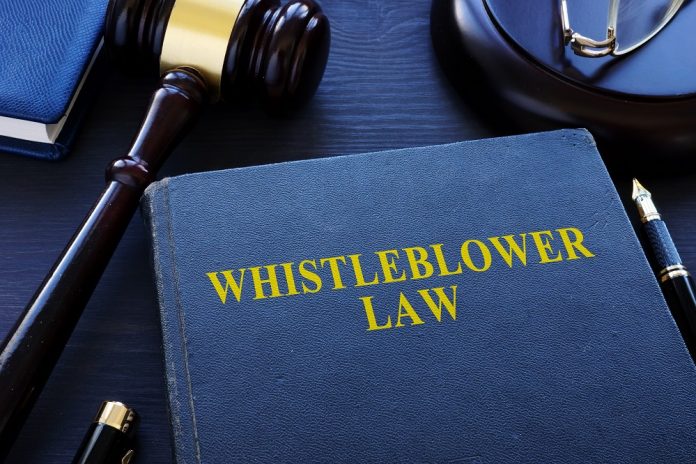This article is written by Shivank Datta, pursuing Diploma in Business Laws for In-House Counsels from LawSikho.
Table of Contents
Introduction
The increase in whistleblower complaints has led to an increase in its importance and a need for the creation of a robust mechanism for their protection. This increase in whistleblower protection in India points to a tool for the organisations that promotes a transparent structure and allows effective and clear communication. The concepts of ethics, honesty and disclosure of truth are the driving factors for the whistleblowers. Whistleblowers are the employees that feel obliged to disclose information about an organisation’s unethical and corrupt practices by reporting its unlawful activities.
The majority of the whistleblowers who report any misconduct are employees of that organisation. Therefore, it becomes more important that there exists a mechanism that provides protection to them. Time and again, there have been various instances where attempts to control and silence the whistleblowing activities have made it to the headlines. In light of the same, this article attempts to examine the legal aspects of the whistleblowing regime that provides a mechanism for the protection of whistleblowers in India.
Who are whistleblowers?
The International Labour Organisation (ILO) defines whistleblowing as “the reporting by employees or former employees of illegal, irregular, dangerous or unethical practices by employers.”
The United Nations Convention against Corruption (UNCAC) refers to “any person who reports in good faith and on reasonable grounds to the competent authorities any facts concerning offences established in accordance with this Convention.”
Whistleblowing is an act where an employee of an organisation, upon witnessing and believing that the practices of that organisation are unethical or corrupt, seeks to stop such activities by informing the top authorities in that organisation or by confiding to an outside vigil mechanism.
Types of whistleblowers
- Internal– where the whistleblowers inform about the wrongdoings to the top authorities of that organisation i.e., internal whistleblowing.
- External– where the wrongdoings are reported to the authorising outside the organisation like the media or enforcement agencies, it is called external whistleblowing.
- Alumni– where the whistleblower is a former employee of the concerned organisation.
- Open– when the identity of the whistleblower is known/revealed, it is called open whistleblowing.
- Personal– disclosure of the organisational wrongdoings that are directed towards an individual, is called personal whistleblowing.
- Impersonal– where the wrongdoings harm others, it is called impersonal whistleblowing.
- Government– where the disclosure of information about the wrongdoings, usually a corruption of the government officials.
- Corporate- where the disclosure of information about the wrongdoings of a corporate is made, it is called corporate whistleblowing.
Legal mechanisms in India
The driving force behind free, transparent and truthful whistleblowing is the protection provided by the legal regime. Under Indian law, there are a few legal mechanisms that protect the rights of the whistleblowers by providing them with the independence to disclose information about an improper and unethical activity with respect to any corporation.
The first and foremost protection for whistleblowers is provided under the Constitution of India. Article 19(1)(a) of the Constitution of India gives the citizens the right to impart and receive information under the umbrella of the right to speech and expression. The State has an obligation to provide for the conditions and mechanisms that ensure that this right is effectively enjoyed by all. Further, Article 21of the Constitution of India provides for a right to life and personal liberty that expands to a number of rights including the right to hold a particular opinion as well.
The government of India enacted the Whistleblower Protection Act, 2014 (hereinafter referred to as WPA) that applies only to public servants. With the rise in corruption and other wrongdoings, there was a necessity for the government to establish a robust mechanism that ensures a check on the prevalent wrongdoings within the government. The WPA was enacted with the intent to;
- Establish a mechanism to receive complaints relating to the disclosure;
- On any allegation of corruption or wilful misuse of power or willful misuse of discretion;
- Against any public servant;
- To inquire or cause an inquiry into such disclosure; and
- To provide adequate safeguards against victimisation of the person making such a complaint.
According to Section 2(d) of the WPA, a disclosure means a complaint relating to an attempt to commit or commission of an offence under the Prevention of Corruption Act; or wilful misuse of power or willful misuse of discretion by virtue of which demonstrable loss is caused to the Government or demonstrable wrongful gain accrues to the public servant or to any third party; or an attempt to commit or commission of a criminal offence by a public servant.
The WPA is Legislation that solely focuses on government bodies and organisations including public sector undertakings. However, nongovernmental public and private companies also have a mechanism that deals with disclosure as prescribed under the Companies Act, 2013 (hereinafter referred to as CA).
Legal protection under the Companies Act
Section 177(9) of the CA provides that all public listed companies have to mandatorily establish a ‘vigil mechanism’ so that the concerns of the persons making disclosures are received and acted upon. In furtherance of the same, it is also mandatory that a whistleblowers policy be established with clear and adequate safeguards against the victimisation of the persons making use of that mechanism. However, the establishment of a whistleblowers policy is not mandatory for private companies and it depends solely on the discretion of the companies to formulate such a vigil mechanism and follow it. The viability of the whistleblower policy is dependent on the intent of the organisation for proper implementation and the directions mentioned in the policy that ensure proper compliance of the same.
The whistleblower policy or the ‘vigil mechanism’ must be a mechanism that provides:
- A channel to report the violation/wrongdoing like discrimination, wilful negligence, misappropriation of funds and audit reports etc.;
- A hierarchy structure spanning from the entry-level employee to the top management;
- Zero harassment towards the person disclosing;
- Confidentiality to safeguard the whistleblowers;
- Disciplinary action for the persons providing false information or making false disclosures with malicious intent.
In addition to this, there are various other provisions in the CA that provide for a framework for inquiry and investigation and a vigil mechanism that back the whistleblowers protection by way of external agents/whistleblowing. The CA under Section 206 to 229 play an important part in the vigil mechanism and help in the identification of wrongdoings. Section 208 of the CA empowers an Inspector to go through the records and recommend a further investigation in such matters of doubt; Section 210 empowers the central government to order investigation on the receipt of such recommendations from the inspector or in the public interest or on intimation of a special resolution passed by the company to be investigated. Section 211 has led to the formation of the Serious Fraud Investigation Office (SFIO) pertaining to offences of fraud.
Legal protection under the Securities & Exchange Board of India
The Securities & Exchange Board of India (hereinafter referred to as SEBI) vide circular dated 26th August, 2003 amended the principles of corporate governance incorporated under the standard Listing Agreement. Clause 49 of the Listing Agreement mentioned the formation of a whistleblowers policy for companies. In furtherance of the same, the SEBI vide Regulation 22 of the SEBI (Listing Obligations and Disclosure Requirements) Regulations, 2015 (‘LODR’) made it mandatory for listed companies to have a whistleblowers policy i.e. ‘vigil mechanism’ for their employees.
To add more protection to the whistleblowers the SEBI vide Regulation 9A(6) of the SEBI (Prohibition of Insider Trading) Regulation, 2015 mandated every public company to have a whistleblowers policy and create such awareness among the employees to report instances of leak of unpublished price sensitive information. The SEBI also introduced a reward mechanism to incentivise the person disclosing information of a violation of the insider trading laws.
The SEBI has brought in various other provisions for the strengthening of corporate governance such as Regulation 30 of the LODR that requires disclosure of material information to the SEBI and the Companies (Auditor’s Report) Order, 2020 (‘CARO’) that applies to every company and necessitates enhanced due diligence and disclosure on the part of the auditors of the company to increase transparency.
The rules provided by the SEBI apply only to listed companies and do not apply to unlisted private companies. The private companies are under no obligation to frame a vigil mechanism or the whistleblowers policy for their company but are bound by the provisions of the CA and the CARO. However, there are certain progressive private companies that have enacted or adopted a whistleblowers policy as it is becoming a globally accepted practice; thereby maintaining a global standard, shareholder trust and transparency in their business activities.
The formation of a whistleblowers policy in a company also necessitates prevention from making frivolous complaints by providing a manner for taking suitable action against persons making false disclosures and complaints. The Companies (Meetings of Board and its Powers) Rules, 2014 provides that in case of repeated frivolous complaints filed by the directors or employees of the company, the audit committee may take suitable action against such director or employee. These aforementioned provisions form the Indian legal regime that focuses on transparency in business and the protection of whistleblowers against disclosures made by them.
Conclusion
The protection of whistleblowers has become increasingly significant with the increase in employee vigilance and corporate governance. The adoption of such a vigil mechanism in India is imperative for the growth of corporate governance and transparent business practices. The companies must be cognisant in developing a robust whistleblowers policy that not only supports the people disclosing such information by providing anonymity and protection but also ensures that misuse of that protection and information is not entertained. It is difficult to balance the advantages of a whistleblowers policy with the disadvantages of frivolous complaints but adopting such a vigil mechanism in the first place would be a bigger step towards increasing awareness and responsibilities for a strong, transparent and efficient business environment that lead to the creation of a compliance culture in India.
References
- https://www.sebi.gov.in/legal/circulars/aug-2003/corporate-governance-in-listed-companies-clause-49-of-the-listing-agreement_15948.html
- https://www.sebi.gov.in/sebiweb/home/HomeAction.do?doListing=yes&sid=1&ssid=3&smid=0
- https://ibclaw.in/section-210-of-the-companies-act-2013-investigation-into-affairs-of-company/#:~:text=company%20%2D%20 IBC%20 Laws-,Section%20210%20of%20the%20Companies%20Act%2C%202013,Investigation%20into%20affairs%20of%20company&text=(2)%20Where%20an%20order%20is,the%20affairs%20of%20that%20company.
- http://corporatelawreporter.com/companies_act/section-208-of-companies-act-2013-report-on-inspection-made/#:~:text=The%20Registrar%20or%20inspector%20shall,if%20 necessary%2C%20 include%20a%20 recommendation
- https://prsindia.org/billtrack/the-whistle-blowers-protection-amendment-bill-2015#:~:text=The%20Whistleblower%20Protection%20 Act%2C%202014,offences%20by%20a%20public%20 servant
Students of Lawsikho courses regularly produce writing assignments and work on practical exercises as a part of their coursework and develop themselves in real-life practical skills.
LawSikho has created a telegram group for exchanging legal knowledge, referrals, and various opportunities. You can click on this link and join:
 Serato DJ Crack 2025Serato DJ PRO Crack
Serato DJ Crack 2025Serato DJ PRO Crack











 Allow notifications
Allow notifications


